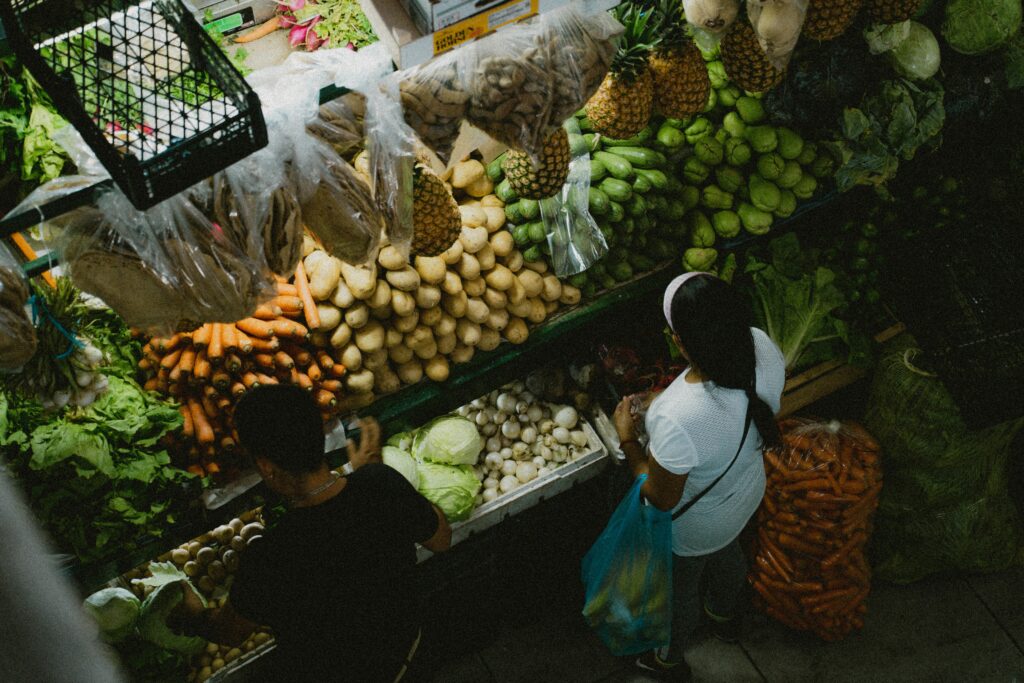
misfits market
In a world where millions go hungry and tons of food that could be sold are thrown away every day, the likes of Misfits Market are redefining grocery shopping. Founded initially in the United States, the name Misfits Market is now synonymous with sustainability, affordability, and food equity. As India faces the bane of food wastage, soaring grocery prices, and the kink of sustainability, the likes of Misfits Market can act as a model-for or partner-for-wrenching-change.
This article intends to delve into how Misfits Market functions, why it matters in today’s global and Indian context, and how the uniqueness of its model could serve as an inspiration or be integrated into the Indian market.
What Is Misfits Market?
Misfits Market is an online grocery delivery service that, in an effort to combat food waste, sources and sells imperfect or surplus food that would otherwise be discarded. These real items can include odd-shaped fruits and vegetables, close-to-expiry packaged goods, or overstock items and sustainably sourced groceries, sold at a discount of 40% from regular supermarket prices.
The idea is simple yet revolutionary: give imperfect food a second chance, pass on the benefits to consumers by way of lower prices, and cut down on environmental damage caused by food wastage.
The Misfits Market Model
Misfits Marketing functions in partnership with farmers, producers, and distributors to rescue food deemed “ugly” by the stringent aesthetic standards set by conventional retail chains. The misfit foods may have a slight bend on a carrot,perhaps some minor spots on an apple, or may be nearing their expiration for packaged products.
Generally, such happens in the following way:
- Sourcing: Misfits Market identifies surplus or “ugly” produce and goods.
- Curation: These items are sorted and packed into customizable boxes.
- Delivery: Groceries are delivered directly to customers’ doors on a weekly or bi-weekly basis.
By doing away with the middlemen and working directly with suppliers, Misfits Market saves a pretty amount of cost while also saving our environment from pollution that goes with traditional grocery logistics.
Misfits Market and the Global Fight Against Food Waste
One event which is already know to waste about a third of the world’s food products. According to the Food and Agriculture Organization (FAO) of the United Nations, this accounts for almost 1.3 billion tons of food annually. In the United States, food wastage is a $408 billion problem. India, facing very different issues with infrastructure, is not very far back.
In India, food wastage happens at many stages: such as at harvesting, post-harvesting, processing, retail, and consumption. A report by the Indian Council of Agricultural Research (ICAR) published in 2021 puts out an estimate of 16% of fruits and vegetables being wasted each year due to mishandling and storage.
One thing Misfits Market’s models certainly do is resolve that issue by providing a platform that will absorb excess produce and then deliver it to consumers at an affordable price and efficiently.
Could Misfits Market Work in India?
The Indian grocery ecosystem is on a fast track for digitization. Names such as BigBasket, Blinkit, Zepto, and JioMart constantly compete with one another to deliver fast, affordable, and high-quality groceries. However, despite their efficiency, most of these platforms continue to place a premium on the appearance of fresh produce. As a result, they inadvertently contribute to food wastage by rejecting items that don’t meet strict visual standards.
Introduced in India, here is what a Misfits Market-type model could do: By creating a new market for items that would typically be discarded, Misfits Market has the power to divert millions of tons of food from landfills each year. Beyond its environmental benefits, this model also delivers a strong social impact—making nutritious groceries more affordable for low-income families who often struggle with rising food prices. At the same time, farmers gain an additional income stream by selling products that would otherwise be rejected by conventional retailers, turning potential losses into sustainable earnings.
Given India’s diversity, logistical complexity, and gaps in infrastructure, any adaptation of the Misfits Market model will need regional modifications. Nonetheless, there is colossal potential.
Environmental Benefits of the Misfits Market Approach
Reducing food waste isn’t just about saving money or feeding the hungry—it’s a critical climate action. Rotting food in landfills releases methane, a greenhouse gas 84 times more potent than carbon dioxide over a 20-year period.
By rescuing food and ensuring it reaches people’s tables, Misfits Market prevents unnecessary emissions and conserves the vast amounts of water, energy, and land used to produce that food in the first place.
In 2023 alone, Misfits Market claimed to have saved over 200 million pounds of food from going to waste. Imagine the environmental savings if a similar model were applied across Indian states!

Misfits Market vs. Traditional Grocery Retail
Traditional grocery stores often reject fruits and vegetables that don’t meet their visual standards—even if they’re nutritionally perfect. This results in a massive loss of food and profit. Misfits Market turns this inefficiency into a strength.
Here are some key differentiators:
| Feature | Traditional Grocery | Misfits Market |
| Focus | Aesthetically perfect produce | Imperfect or surplus food |
| Pricing | Retail or premium | Up to 40% cheaper |
| Environmental Impact | High waste, high emissions | Low waste, sustainability-focused |
| Delivery | In-store or limited delivery | Online-first, nationwide shipping |
This approach disrupts the conventional retail model while creating a positive social and environmental impact.
Misfits Market: A Boon for Conscious Consumers
In today’s world, particularly the millennial and Gen-Z consumers, are becoming more and more environmentally conscious, price sensitive, and digitally aware. That directly fits the demographic on which Misfits Market concentrates.
A rise in food inflation and smartphone penetration is pushing more families to open up to online grocery shopping in India. Such a platform as Misfits Market will likely appeal to:
- Environmentally conscious individuals trying to cut their carbon footprint.
- Middle-class people who want to reduce grocery expenses.
- College students and young professionals who need things to be convenient and cheap. click here
Challenges and Considerations for an Indian Launch
At such a huge opportunity, bringing the Misfits Market or any other resembling model into India faces several challenges:
- Cold Chain Infrastructure: Perishables need proper storage and transportation, which is lacking in much of India today.
- Consumer Mindset: An increasing number of consumers in India feel odd-looking produce is lesser in quality.
- Regulatory Landscape: The regulations concerning e-commerce and food safety differ from state to state.
- Regional Diversity: There cannot be a one-size-fits-all solution; the model must go hyper-local.
However, these challenges can certainly be overcome with the right partnerships-whether with the farmers on the ground, NGOs, or the more established e-commerce players.
Could Indian Startups Replicate Misfits Market?
Indeed. A handful of Indian startups are also venturing into similar soil, though nowhere near the scale of Misfits Market.
- Crofarm’s Otipy: A consumer-oriented community model fostering a direct link between farmers and consumers.
- AgroWave: Works on reducing farm waste through mobile pickup stations and farm-to-business supply chains.
- Loopworm: Converts food waste into animal feed.
What India needs is one consolidated brand, something like Misfits Market, which can transform “ugly” food into something desirable, affordable, and accessible.
The Future of Sustainable Grocery Shopping
The increasing urbanization, inflation for foods, and climate pressure shall put the grocery shopping experience in for some big changes. Whereas Misfits Market has offered its service to show that it is possible to have a profitable, scaling, and ethical business that meets perceptions with environmental concerns.
Respectively adapted to India, the Misfits Market model could:
- Improve farmer incomes.
- Bring down the food bill in cities.
- Reduce food waste in the country.
Facilitate achievement of Net-Zero Emissions targets for the country.
Conclusion
Misfits Market is not merely about operating a business. It is about a movement. By reimagining the way we value food, it questions our consumption habits, fights against old retail models, and works for a better, sustainable planet.
For India, the time is perfect to try such a model. Be it Misfits Market entering the Indian market, or the local startups that may be inspired to do the same, one thing is definite: Grocery shopping of the future is going to be an affair of sustainability, smart logistics, and inclusivity.
As Misfits-like platforms begin to gain momentum worldwide, India is about to witness the birth of an eco-friendly grocery revolution. It is not a matter of if-but when.





